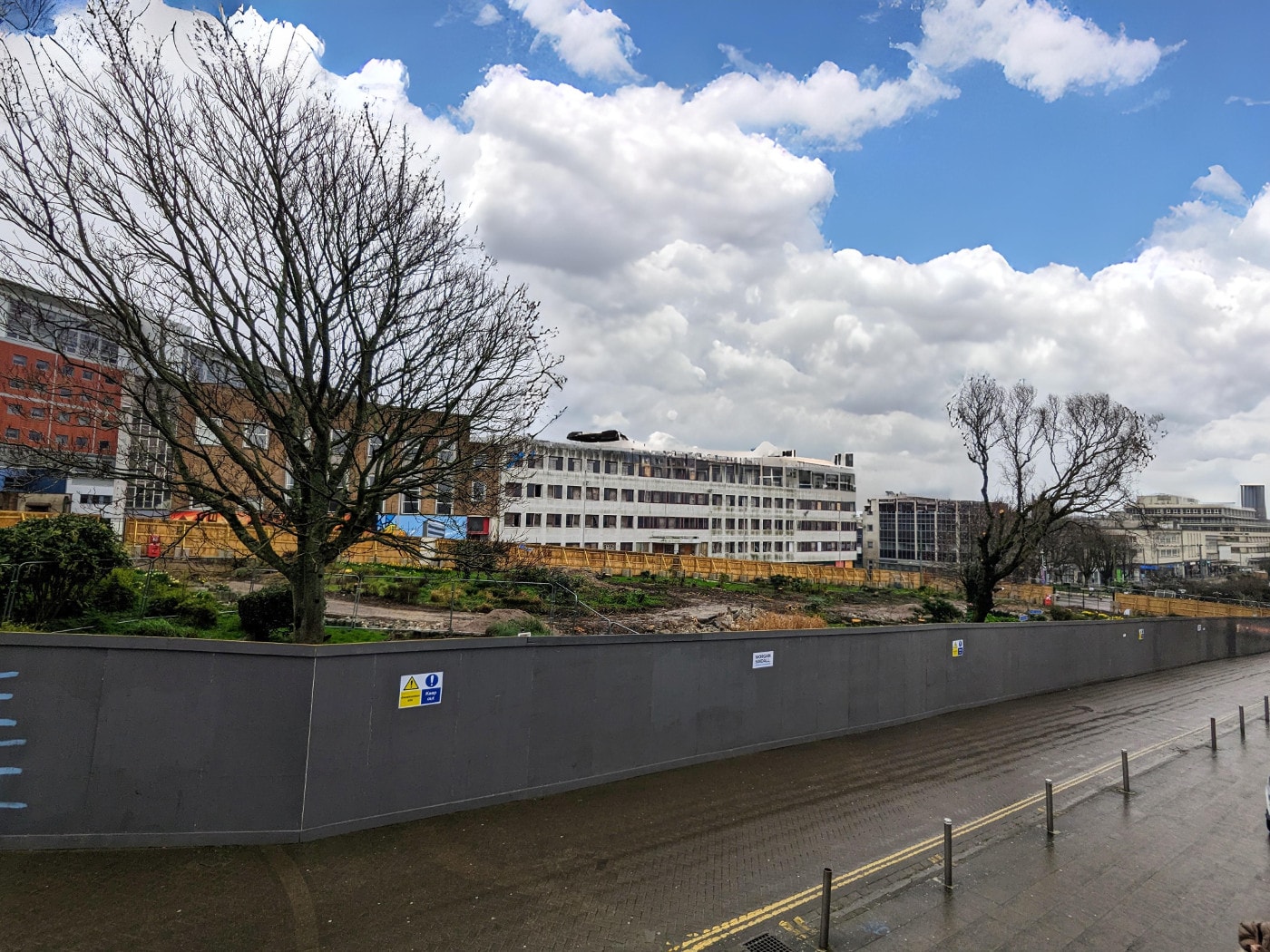
The city Robbin has gone
- 5 minsThe City Robbin has moved on 😢
Plymouth City Centre has changed. Better put, Armada Way’s evolution is now underway. Some say it’s long overdue. Others say the plans are throwing the baby out with the bath water. Personally, I’ll miss The City Robin and avian soundscape the most.
This week’s visit to Plymouth afforded me some spare time. With a strike-induced overnight stay, I spent a few hours wandering around without headphones, something that’s become increasingly common in recent months. The city Robbin who hung out in the trees adjacent to the Sainsbury’s car park, whose chirping I’ve listened to more than a few times, has moved on. Mainly because its home has gone.

The same scene runs for almost the entire length of the street. A chunk of the canopy has been removed, the bird variety vastly reduced, and the calming rustle that was present on even the stillest of days has fallen silent. The cool, shady nooks and crannies previously afforded to the city folk for people-watching have been replaced by piles of trees.
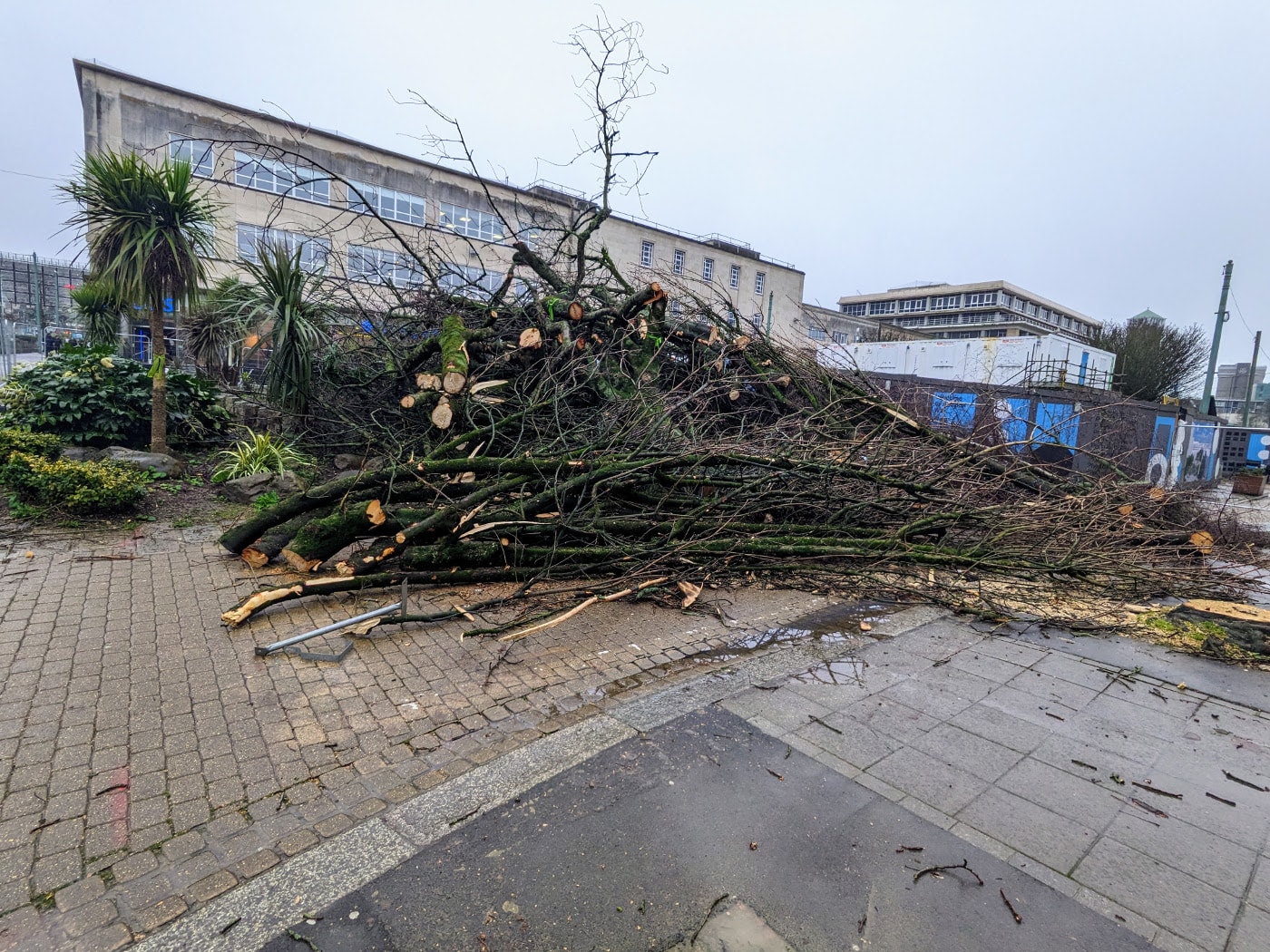
It feels like they’d been in their place since the dawn of time. Certainly my time. I’d played under them as a kid. Enjoyed lunch with my partner underneath on a hot day, as far back as our first out of county trip. My parents dated amongst the canopy-covered walkways after decades of playing under them during shopping trips with my grandparents and, at the time, recently settled great-grandparents.
Today, the stacks almost act as a middle finger to everyone who wanted to regenerate around them, not despite them. A huge part of the what made the city centre a nice place to spend time in the summer lay scattered along the collective concourse. Countless memory triggers gone forever, with as many more prevented from being created
For the entire time I was in the city (24 hours), a solitary Blackbird cried out in distress from one of a handful of remaining trees along the strip towards the hoe, calling for help day and night. Each rendition I caught became increasingly laboured.
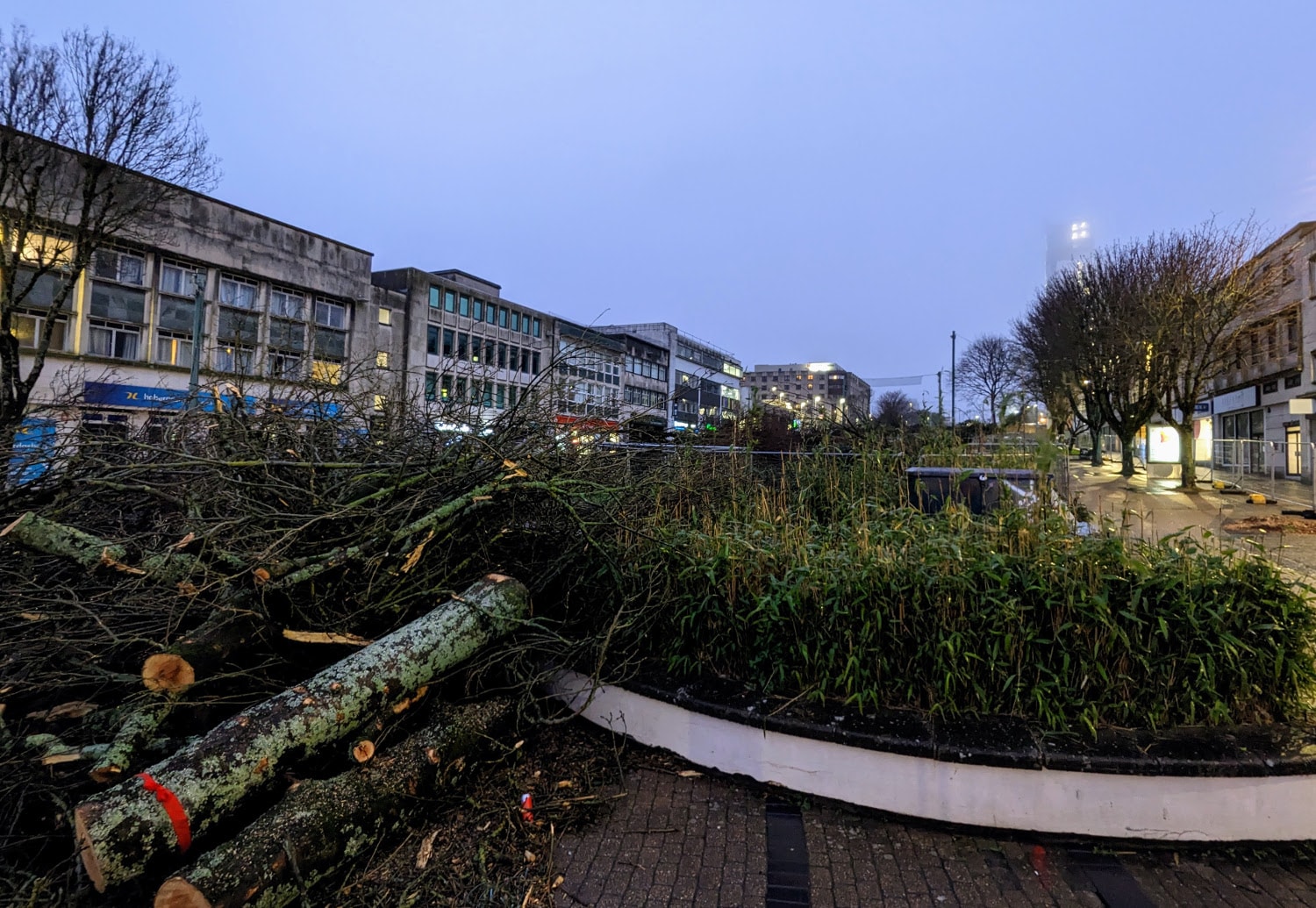
By the time to leave had arrived, the cries were much more strained and less audible. My guess. It’s a female looking after eggs, or at least a nest, waiting for a long-gone partner to return with food. Perhaps it was lamenting the loss of habit that countless generations had inhabited, knowing its home would be next to go. Shouting a warning to everyone passing below that someone was destroying the ecosystem. Who knows what’s happening in the Ferngully-esque world above our heads.
Very soon. Not a lot.
For the moment, a flock of Pigeons had taken to hanging out in another part of the remaining canopy. I’d like to think the gang were acting as a Blackbird bouncer, defending it against the destroyer of worlds. The truce had been long-lived. But it’s over now. Anyone from the other side must be divebombed.
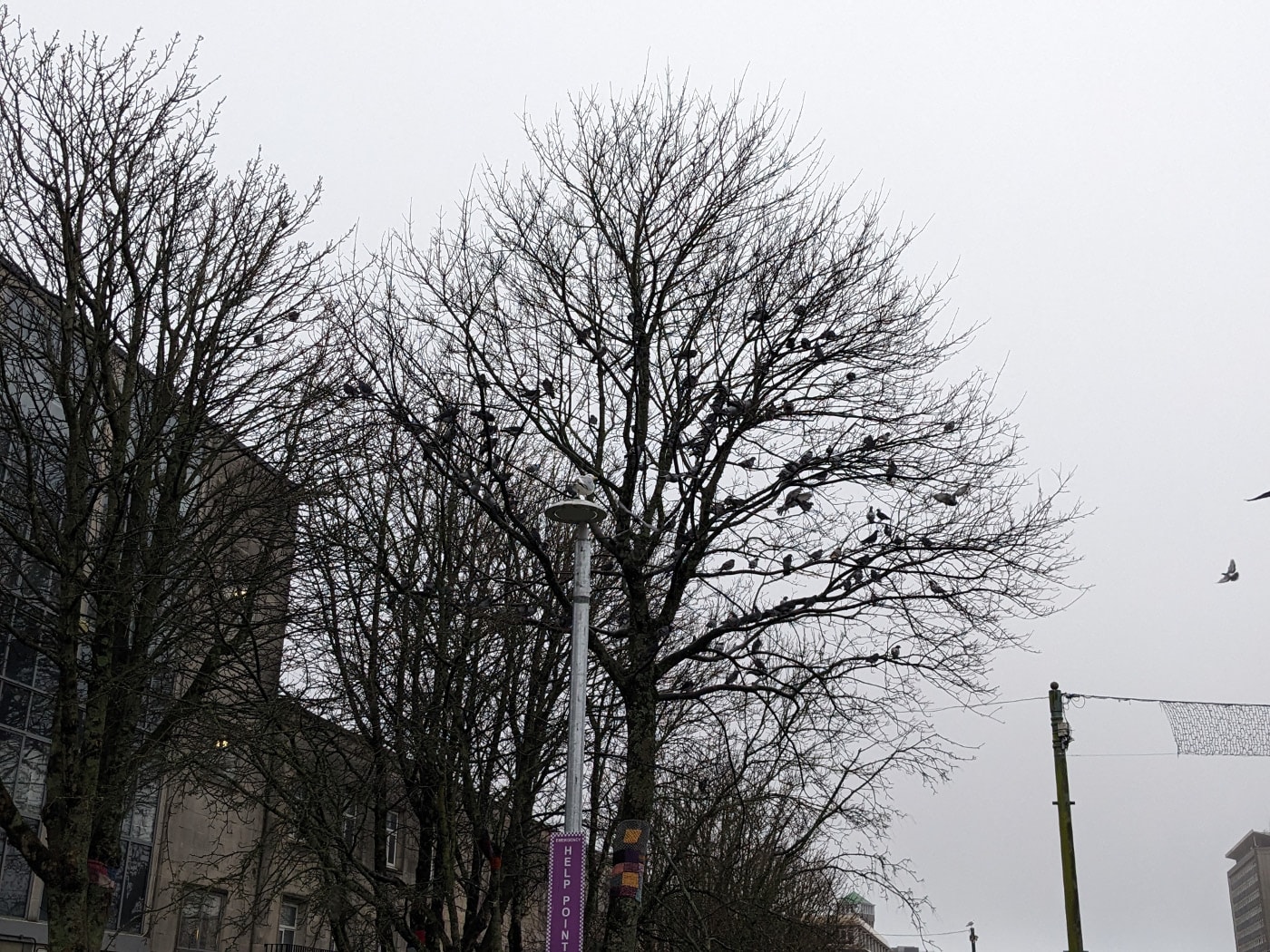
It is the only way.
Moving further afield from the centre, the reminder that Plymouth actually has quite a good tree stock across the street plans. Well. At least everywhere that hasn’t had a significant development over the last couple of decades at least. The summer thunk of whispy branches against the bus’s upper deck hasn’t disappeared. Yet. That childhood sound is still alive. For now.

Shifting perspective and taking a step back, the wooded nature of the city becomes apparent. The flashes of pink from the magnolia trees contrast against the evergreen backdrop many gardens provide. A reminder that civilization’s canopy cover is the responsibility of everyone to provide. Not just our council overlords. We can control the planting scheme on our own properties, after all.

And even in other parts of the centre, there are plenty of trees remaining. Just none as grand as the fallen.
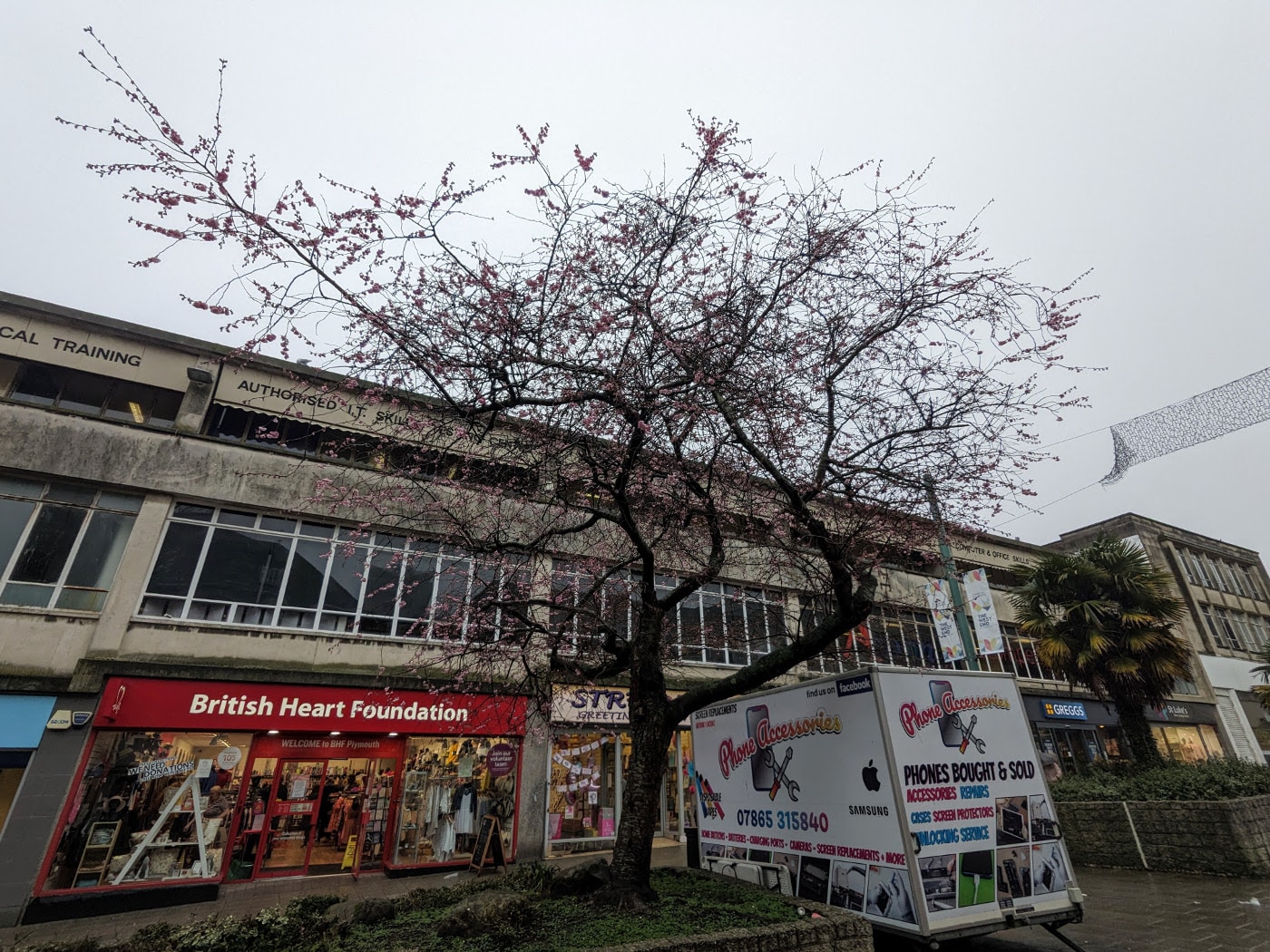
Sure, some of the tropical varieties look a little bedraggled right now. But the coming few months of spring warmth coupled with the recent rainfall means they’ll be looking fabulous by summer. How long we’ll be able to say that. 🤷♀️
Progress must march on. There is nothing one can do to affect the situation; that much is clear. Only the foolish would dwell upon it for much longer. Especially given the sadness elicited during my stroll.
In a time when many cities worldwide are adding large canopy trees into their streets to provide shade, temperature reductions, a natural habitat, plus air filtration. . . Plymouth is moving in the opposite direction. While the former wishes they’d planted the trees decades ago - but are forced to do so today - Plymouth has decided to remove the most established and replace them with smaller canopies in the years to come.
It feels like the wrong choice to me. A bit short-sighted. I hope the decision-makers know about other future green space regeneration plans that the masses don’t, whilst fitting the city into the national goal of improving our tree cover.
Regardless. I’m going to miss my Robbin friend. He was always happy to see me. Or so it felt that way.